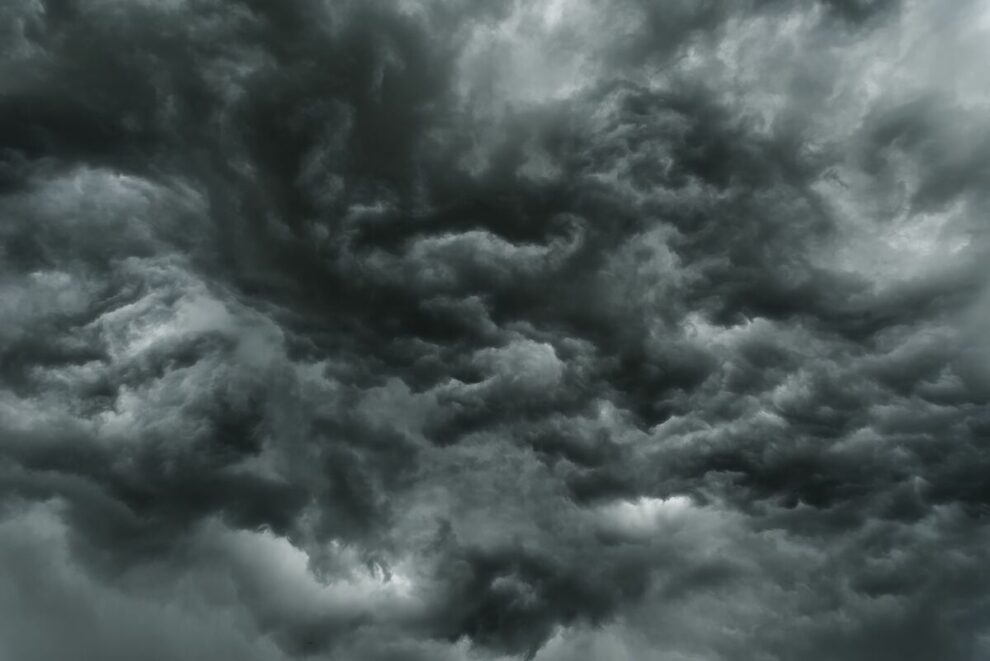Weather sure is complicated. But climate is dead simple, we’re told. Even a schoolgirl can understand it and all voters are meant to lean in to fix it… until you question orthodoxy at which point you’re liable to be told you’re not a “climate scientist” so you can’t have an opinion. Still, if it’s so simple, we want to know where the hurricanes went. After all, the essence of science isn’t a degree in Thinkology, it’s testing theories against evidence. And as Eric Berger wrote on Ars Technica, “This should be the absolute peak of hurricane season – but it’s dead quiet out there”. Even the subsequent appearance of hurricane Fiona, a Category 2 at time of writing, doesn’t change the fact that 2022 has been comparatively calm. Can someone tell us why?
We would turn to some such sober scientific giant as the American government’s National Oceanic and Atmospheric Administration. But unfortunately as recently as May 24 they said “NOAA predicts above-normal 2022 Atlantic Hurricane Season/ Ongoing La Niña, above-average Atlantic temperatures set the stage for busy season ahead”. And of course we were meant to draw the obvious conclusion from the fact that “Forecasters at NOAA’s Climate Prediction Center, a division of the National Weather Service, are predicting above-average hurricane activity this year — which would make it the seventh consecutive above-average hurricane season.” Even if they went on to qualify the prediction as “a 65% chance of an above-normal season, a 25% chance of a near-normal season and a 10% chance of a below-normal season.”
They then said “The way in which climate change impacts the strength and frequency of tropical cyclones is a continuous area of study for NOAA scientists.” OK. Let us know when you get anywhere. We’ll wait. Especially since on August 4 they were sticking with “NOAA still expects above-normal Atlantic hurricane season/ Preparedness is key during the peak months of hurricane season”.
So it’s all hurricane all the warming. As a guest essay in the New York Times recently squalled, “The federal government has warned that Hurricane Harvey could be a harbinger of climate change. Warming temperatures are making rainstorms more intense and hurricanes wetter, and they increase the risk of severe flooding not only for coastal areas but inland communities as well. The Houston region could also see more extreme heat, drought and sea-level rise as climate change accelerates.” Authors Anna Rhodes and Max Besbris then scratched their heads over why Americans were not fleeing from neighbourhoods even though these two climate experts (or to be technical, sociology professors) “believe managed retreat must become more common so communities can avoid the worst consequences of climate changes.” And infuriatingly “Home prices in the area didn’t decline at all after Hurricane Harvey, making it possible for many people to sell their damaged homes and buy somewhere less prone to flooding.” So everyone’s a fool but them. Or the evidence doesn’t say what they expect it to.
As Berger observed, this season has been quiet in terms of number of storms and intensity of winds, which are combined in a metric called Accumulated Cyclone Energy. “By this more telling measurement, the 2022 season has a value of 29.6, which is less than half of the normal value through Saturday, 60.3. Perhaps what is most striking about this season is that we are now at the absolute peak of hurricane season, and there is simply nothing happening.”
He then states the obvious, an important duty in these troubled times. Specifically “it is still entirely possible that the Atlantic basin – which includes the Atlantic Ocean, Gulf of Mexico, and Caribbean Sea – produces a madcap finish”. But “we’re just not seeing any signs of it right now.” And if we’re not, any theory that says we are needs to go back to the shop for an overhaul.



Why are people refusing to investigate the large scale impacts of weather manipulation/ modification?
Some sociologist should do a study on how people persist in a belief or become even stronger in a belief when evidence is contrary to the belief. What is it about the human mind that could account for this?
https://www.bitchute.com/video/QRRjBXzLwr3i/
Here’s evidence of military weather modification. Has military weather modification been stopped?
Perhaps you are talking about the concept of Cognitive Dissonance.